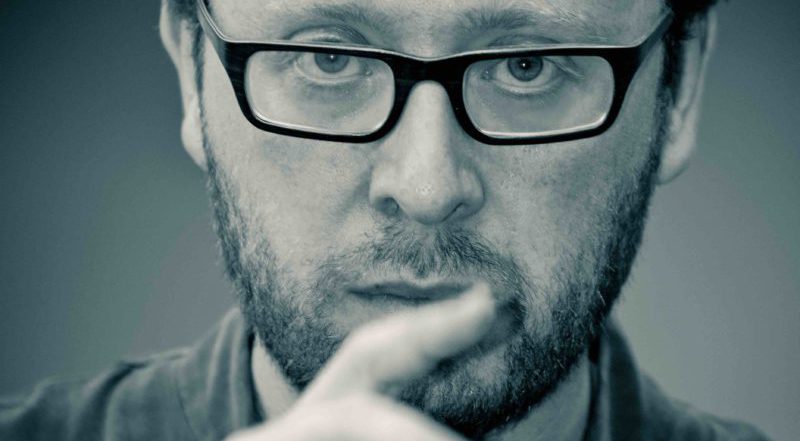INTERVIEW: Roberto Prosseda to play Mendelssohn at UCLA
Photo: Roberto Prosseda will play a mini-recital at UCLA’s Jan Popper Theater in Los Angeles. Photo courtesy of the artist / Provided by artist’s press kit.
Roberto Prosseda, the celebrated pianist known for his solo work and extensive playing with world-renowned orchestras, will bring his musical mastery to the Jan Popper Theater at the University of California, Los Angeles, on Thursday, Feb. 21 at 6:30 p.m. Tickets are free.
Prosseda is a master interpreter of the catalog of Felix Mendelssohn, having recorded the composer’s complete piano works over the course of 10 years for Decca. He will bring his expertise to UCLA with a special mini-recital that features Mendelssohn’s Rondò Capriccioso, along with Wolfgang Amadeus Mozart’s Fantasia K 475 and Franz Schubert’s 4 Impromptus op. 90.
After Prosseda plays these special selections, he will join with students from UCLA’s Herb Alpert School of Music and lead a master class that goes over the following compositions: Claude Debussy’s Bergamasque Suite (two movements), Ludwig van Beethoven’s Concerto #4 (first movement) and Johann Sebastian Bach’s Chaconne.
Prosseda has played with the likes of the London Philharmonic Orchestra, New Japan Philharmonic and Moscow State Philharmonic, among many others. He is also a go-to performer of the pedal piano, having offered more than 50 concerts playing the instrument.
Recently Hollywood Soapbox exchanged emails with Prosseda about his upcoming recital. Questions and answers have been slightly edited for style.
What goes into the selection of the program for a recital? How did you settle on these pieces?
I picked some of my own favourite pieces that I feel particularly close to my sensitivity in this moment. All these compositions were composed in a range of 50 years (1785 – 1835), and, in some ways, they are all related to another composer: Ludwig van Beethoven.
We can actually find some Beethovenian elements in Mozart’s Fantasia, which anticipates the rhythmic energy and dynamic contrasts typical of Beethoven Sonatas (the Op. 13, in particularly, comes to my mind). And the final scales of the Fantasia are the same as in the piano entrance of Beethoven’s the Third Piano Concerto.
Schubert and Mendelssohn were both deeply influenced by Beethoven, even if their style took different paths. In Schubert’s Impromptu op. 90 n. 1, the rhythmical drive given by the repeated notes (already present in Mozart’s Fantasia K 475) [gets] a completely different expressive [result] than in similar passages that we find in Beethoven. Schubert never ‘pushes’ the music forward and [lets] the music move with a different ‘logic,’ where new landscapes magically appear with a disarming, wonderful naturalness.
A few years ago, you recorded the complete works of Mendelssohn, and you’ll be playing a selection at UCLA. What do you enjoy about this composer’s music?
When in 2003 Henle published the Catalogue of Mendelssohn papers kept at the Deutsche Staatsbibliothek in Berlin, I soon realized that many piano works listed in that catalogue were not published yet, so I ordered the scans of the scores of some of them. The Decca producer Gian Andrea Lodovici proposed to record the most interesting works, and in 2005 my first Decca CD was released, Mendelssohn Discoveries.
I gradually got more and more passionate about Mendelssohn, discovering further unpublished pieces, so I learned and recorded also his published piano music, completing the recording of his piano music in 2014. Most of it is actually still quite unknown and seldom performed, and I hope that the new editions of Mendelssohn’s piano works, now available, will encourage many other pianists to study and perform this music.
Why is it important for you to offer master classes to aspiring professional pianists?
Teaching music means getting closer and deeper in the music, and becoming more aware [of] our own views of specific masterworks. When we teach, we are forced to stress our attention and energy on the awareness and communication of music. The UCLA format of a short recital followed by a master class looks very stimulating for me, as the audience and the students will have the opportunity to compare my own performance with the master class: It will be interesting to see if I will be able (as I try to do) to separate my own personal interpretations from the suggestions I will give to the students, trying to understand their own point of view and not just expressing mine.
On the other side, for the students and for the normal audience, it will be interesting to listen to an interpreter, that they just heard in the recital, and see how his approach and vision of the music can apply in different ways also to the students’ own playing.
When did you start playing the piano, and when did you realize it would be a lifelong passion?
I started when I was about 3, thanks to my father, who was an amateur musician and taught me how to read and to write music even before I learned how to write a text. When I started I was quite sure that I wanted to be a composer. I actually wrote hundreds of pieces (mostly for piano).
Then my interest switched on the performance of other composers’ music, and I started recording rare pieces, by [Goffredo] Petrassi and [Luigi] Dallapiccola, and then also by Mendelssohn. I like the word ‘passion’ applied to the daily music practicing: without passion, it would not be possible to dedicate most of my time in practicing and performing great piano masterworks by Mozart, Beethoven, Schubert, Mendelssohn.
But also in the daily practice, I try to keep the ‘passion,’ to look for an even more intense and radical interpretation, to reach and move the listener with further intensity and depth.
By John Soltes / Publisher / John@HollywoodSoapbox.com
Roberto Prosseda will perform a mini-recital Thursday, Feb. 21 at 6:30 p.m. at UCLA’s Jan Popper Theater in Los Angeles. Click here for more information. Tickets are free.

